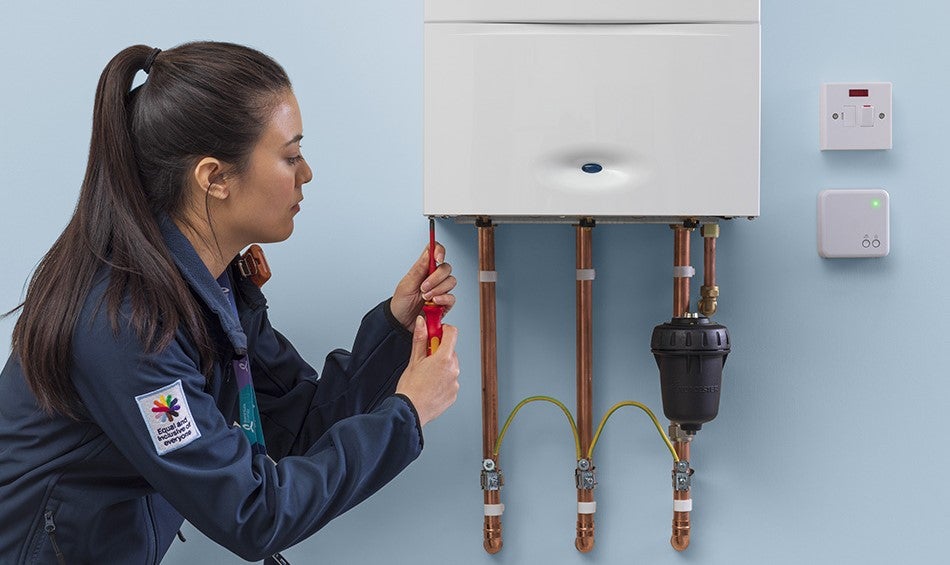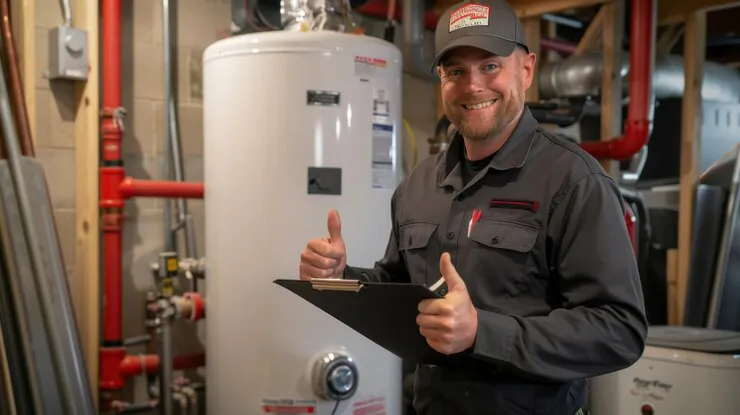Boiler installation is an essential home upgrade that ensures reliable heating and hot water supply, especially during colder months. However, the process can seem complex, involving multiple steps, careful planning, and an understanding of costs. This guide will walk homeowners through the essential aspects of boiler installation, from initial considerations and selecting the right model to understanding the process and associated expenses.
Why Install a New Boiler?
Installing a new boiler can offer significant benefits, such as:
- Improved Energy Efficiency: Modern boilers are designed to be more energy-efficient, reducing energy consumption and lowering utility bills.
- Enhanced Home Comfort: A well-installed, high-quality boiler provides consistent heating and hot water, improving comfort throughout the home.
- Increased Home Value: Upgrading to a new boiler system can increase the overall value of your property, making it more attractive to potential buyers.

Key Considerations Before Installing a Boiler
Before diving into the installation, homeowners should consider the following factors:
- Type of Boiler: There are three main types of boilers: combi boilers, system boilers, and conventional (regular) boilers.
- Combi boilers: Ideal for smaller homes, they provide instant hot water without the need for a storage tank.
- System boilers: Best for larger homes with higher hot water demands; they use a storage tank but do not require a cold-water tank.
- Conventional boilers: Suitable for homes with traditional heating systems and a high demand for hot water. They require both a hot water tank and a cold-water tank.
- Fuel Type: The most common fuel types for boilers are natural gas, oil, electricity, and LPG (liquefied petroleum gas). Your choice may depend on local availability, budget, and personal preferences.
- Energy Efficiency Ratings: Look for boilers with high Annual Fuel Utilization Efficiency (AFUE) ratings. Boilers with a rating of 90% or higher are considered highly efficient and can save significant amounts on energy bills.
- Sizing: The boiler’s size (measured in BTUs or kW) must match your home’s heating and hot water needs. Oversized or undersized boilers can lead to inefficient heating and higher energy costs. A professional heating engineer can perform a heat load calculation to determine the appropriate size for your home.
- Budget: The cost of a boiler installation includes the price of the boiler itself, labor costs, additional parts, and any necessary system upgrades. Homeowners should budget accordingly and consider potential savings from choosing energy-efficient models.

Steps in the Boiler Installation Process
Understanding the steps involved in a boiler installation helps homeowners prepare for the process:
- Assessment and Quote: A certified HVAC professional will assess your home, determine the type and size of boiler needed, and provide a quote. They will also identify any additional work required, such as upgrading pipes or adding insulation.
- Choosing the Right Model: Based on the assessment, homeowners can choose from various brands and models that fit their budget and energy needs. It’s essential to research the best-rated boilers for reliability and customer satisfaction.
- Preparing the Installation Site: The old boiler (if present) will be disconnected and removed, and the installation site will be prepared. This might involve clearing space and ensuring proper ventilation and electrical connections.
- Installation Process:
- Connecting the Boiler: The installer will connect the boiler to the water mains, gas supply, and electricity if necessary. They will also connect any radiators or underfloor heating systems.
- System Upgrades: If additional components such as thermostats, valves, or pumps are needed, they will be installed during this phase.
- Safety Checks: The technician will perform checks to ensure the installation is safe and complies with local regulations.
- Testing and Commissioning: The new boiler will be tested to confirm it works correctly and meets safety standards. This phase includes checking water pressure, ensuring there are no gas leaks, and testing the thermostat controls.
- Homeowner Instruction: The installer will demonstrate how to operate the new system, adjust temperature settings, and perform basic maintenance tasks.
Costs Involved in Boiler Installation
The cost of installing a boiler can vary widely based on several factors:
- Type of Boiler: Combi boilers tend to be less expensive to install than system or conventional boilers.
- Labor Costs: Installation prices differ based on the complexity of the job and regional labor rates. On average, homeowners can expect to pay between $3,500 and $7,500 for a new boiler installation, including labor.
- System Upgrades: Additional costs may arise if the installation requires system upgrades, such as adding new pipes, vents, or electrical work.
- Permits and Regulations: In some areas, homeowners need permits for new boiler installations, which may add to the total cost.
Tips for Choosing the Right Boiler
- Research Brands: Look for trusted brands with good reviews and reliable warranties. Brands like Worcester Bosch, Vaillant, and Navien are known for their efficiency and longevity.
- Consider Future Needs: Choose a boiler that will accommodate any future home extensions or changes in hot water usage.
- Energy-Saving Features: Look for boilers with built-in smart technology, like programmable thermostats and Wi-Fi controls, for better energy management.

Maintenance and Aftercare
Once the boiler is installed, maintaining it properly will extend its life and keep it running efficiently:
- Annual Servicing: Schedule yearly servicing with a certified technician to ensure optimal performance.
- Check for Issues: Monitor the boiler for any unusual sounds, leaks, or performance issues and address them promptly.
- Bleed Radiators: Regularly bleed radiators to remove trapped air and improve heating efficiency.
Final Thoughts
A new boiler installation is an investment in home comfort and energy efficiency. Understanding the types of boilers, installation process, associated costs, and how to maintain your system will help you make an informed decision. With the right preparation and professional support, homeowners can enjoy efficient, reliable heating that enhances their living space while saving on energy bills.
